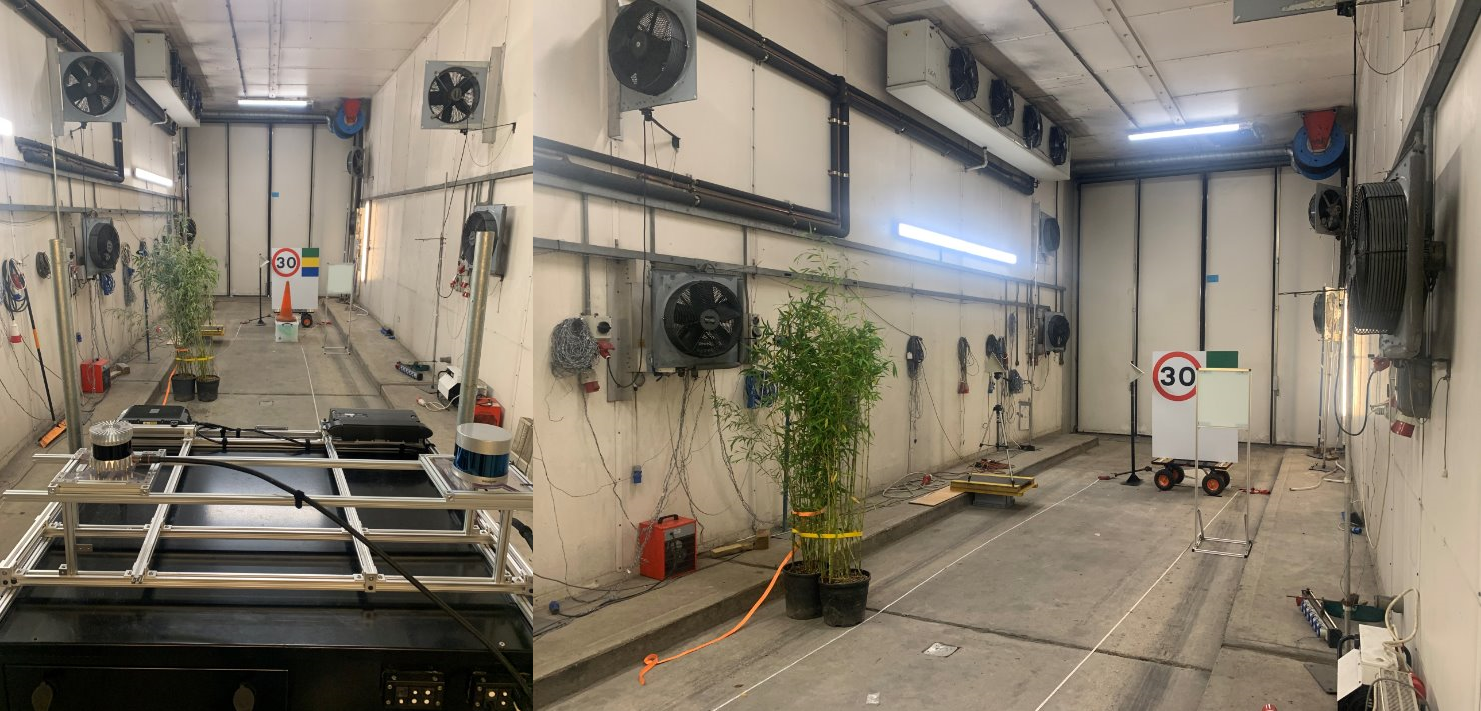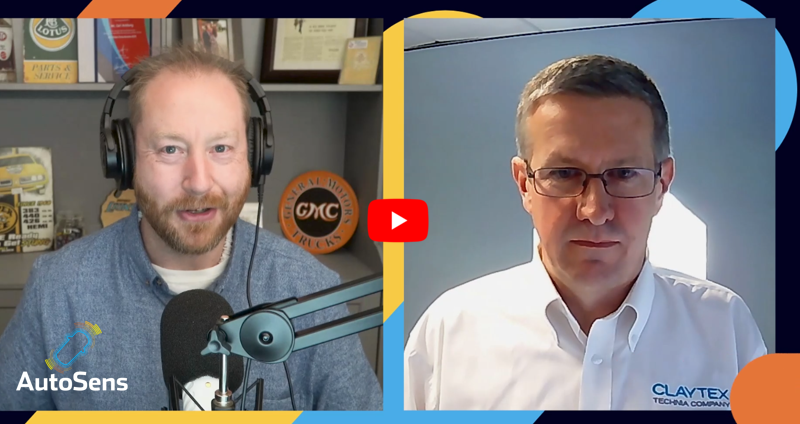Modelling, Simulation and Testing of Automotive Perception Sensors
Sim4CAMSens is a series of CCAV funded projects working on methods to quantify and model camera, radar and lidar sensor performance under all conditions for ADAS, Autonomous Vehicles and In-cabin simulations.
Project Partners
AESIN is an outstanding member-based community enabling the next generation of UK-centric automotive electronics & software systems and supply chains. Leading thought and impact for ingenious, sustainable, efficient, safe, and resilient mobility through the innovative application of electronics & software systems.
Compound Semiconductor Applications (CSA) Catapult was established in 2018 by Innovate UK to help the UK become a global leader in compound semiconductors. CSA Catapult is the UK’s authority on compound semiconductor applications and commercialisation.
Claytex is a consultancy, developer and distributor of modelling and simulation solutions for systems engineering. We focus on simulating the dynamics of how systems behave and interact. Our vehicle simulation solution for ADAS and Autonomous Vehicles provides sensor realistic simulation using the rFpro simulation environment.
The National Physical Laboratory (NPL) is a world-leading centre of excellence that provides cutting-edge measurement science, engineering and technology to underpin prosperity and quality of life in the UK.
Oxford RF provides the world’s first solid-state 360 and 270 ADAS and ADS sensors (enabling full 360-degree or 270-degree sensing without any moving parts). The patented sensor technology has lower size, weight, cost and power consumption compared with existing solutions in the market.
rFpro AV elevate is an engineering-grade simulation environment for the ADAS and Autonomous vehicle simulation. It’s used for the development and testing of autonomous vehicles, ADAS, vehicle dynamics and human factor studies – essentially anything that involves driving a vehicle.
Syselek develops innovative technology and toolchain solutions using automation for high integrity systems. Our solutions are built upon our deep technical expertise, research, engineering, and innovative technologies.
WMG is an academic department at the University of Warwick and is the leading international role model for successful collaboration between academia and the public and private sectors, driving innovation in science, technology and engineering, to develop the brightest ideas and talent that will shape our future.
Scope of Work
The Sim4CAMSens project was setup to make a step forward in perception sensor modelling fidelity for autonomous vehicle and ADAS simulation through the combined test data collection, analysis and model development activities.
The project carried out an extensive test program to collect data on the performance of camera, radar and LiDAR under a wide range of conditions including lab-based testing, field work and on automotive proving ground tests. The tests were designed to explore and identify the noise factors that affect sensor performance.
The modelling and simulation activities enhanced the sensor models for camera, LiDAR and radar and the virtual worlds that they see.


Material property studies were carried out to populate new databases within the simulation tools that mean every object will have the appropriate material properties for the wavelength that the sensor is working at.
The sensor models focus on modelling the physics of how light and em-waves propagate through the environment and return to the detectors.
The validation process for sensor models was developed with support for safety assurance processes in mind. This work explored the topic of simulation tool credibility and produced a set of guidelines for sensor model validation.
The Sim4CAMSens2 project builds on the work in the original project and extends the focus from exterior to also include interior-facing sensor systems, addressing the growing importance of in-cabin monitoring for safety and autonomy.
The project will develop more efficient sensor characterisation methods, examine how perception systems perform in degraded conditions and continue the work on sensor model and simulation validation including developing the link to safety assurance processes.

WP1: Assurance and Certification Workflows, and Validating the simulation toolchain
This work package will expand the validation work done on sensor models and also look at how to validate the scene and rest of the simulation toolchain. The validation work will lead to the update of the simulation handbooks for the sensors and scene. This will then extend to the development of guidance for certification and safety assurance, including proposals for implementation procedures and the use of simulation evidence in vehicle safety assurance.
WP2: Creating a standardised workflow for sensor characterisation and model parameterisation
Develop a standardised workflow for adding new sensors to rFpro in a way that maximises the utilisation of rFpro’s existing physics-based sensor models, and reduces the need for extensive individualised sensor characterisation procedures (e.g. outdoor testing in adverse weather). The characteristics and parameters required by rFpro for accurate sensor modelling will be gathered. An optimum process for obtaining these quantities, and the calibration and validation of the sensor models will be decided on, documented, and trialled on a sensor.
WP3: Sensor model and simulation environment improvements for InCabin and external simulation
Development of advanced sensor model features, bringing learning and initial developments from Sim4CAMSens project, further refinements and new advanced features. Additional focus on human and occupant simulations to futher broaden product offering with in-cabin applications alongside exterior perception.
WP4: Effect of noise factors on perception system
Specialist academic lead investigation into quantifying the effects of individual noise factors on a typical perception system task peformance. Aiming to use synthetic data to highly control the test data, looking for fine resolution understand of when noise factors create a measurable impact on the task performance.
WP5: Accelerating sensor component development through virtual testing and development
Oxford RF’s next focus is the development of a coherent (i.e. synchronised) distributed sensing architecture. This is an upcoming area in radar technology in which the data from two or more synchronised radars are combined to get lidar-like resolution. The models and learnings from within this project will be applied to simulate and validate various automated driving scenarios to develop the sensing architecture.
Project Funding
Sim4CAMSens was part of CCAV’s Commercialising CAM Supply Chain Competition (CCAMSC) and ran from 2023 to 2025.
The Commercialising CAM programme is funded by the Centre for Connected and Automated Vehicles, a joint unit between the Department for Business and Trade (DBT) and the Department for Transport (DfT) and delivered in partnership with Innovate UK and Zenzic.
The CCAM Supply Chain competition was launched in October 2022 to support the delivery of early commercialisable Connected and Automated Mobility technologies, products and services and is part of the Government’s vision for self-driving vehicles. Connected and automated mobility 2025: realising the benefits of self-driving vehicles.
SIM4CAMSens 2 is funded through the £150million CAM Pathfinder programme announced in the UK Government’s Advanced Manufacturing Sector Plan. The programme is funded by the Centre for Connected and Autonomous Vehicles (CCAV), delivered in partnership with Innovate UK and Zenzic.
The CAM Pathfinder 1 – Enhancements competition was launched in December 2024 to target early commercial self-driving vehicle opportunities and support the UK supply chain to grow and fill technology gaps necessary for their deployment and is part of the Government’s vision for self-driving vehicles. Connected and automated mobility 2025: realising the benefits of self-driving vehicles.

Get Involved
The project has established an advisory board with members that cover the whole supply chain. The board includes chip designers, sensor developers, ADS developers, OEMs and test authorities who help steer the project and get early access to the results of the project.
If you’re interested in getting involved, please contact the project leader via the form.













